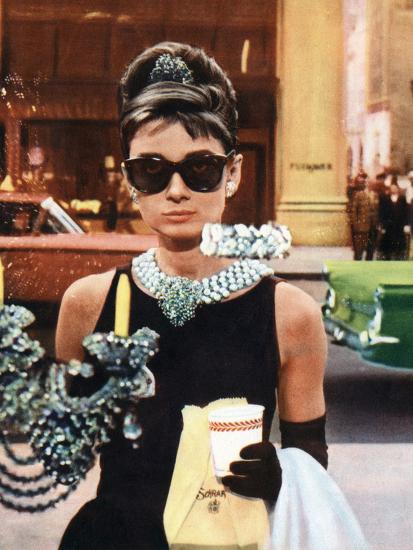What's For Breakfast?
Audrey Hepburn would have turned 90 today. Just by chance I recently read Sam Wasson's Fifth Avenue, 5 A.M., which is about Hepburn and the making of Breakfast At Tiffany's. The book was published ten years ago, but I put off reading it because I don't consider BAT a great film, much less the game-changer Wasson claims it to be.
But the film isn't bad. It has its moments. I like the color, the design, the score, a few scenes (such as the party, which I discovered came mostly from director Blake Edwards and wasn't liked by scriptwriter George Axelrod) and Audrey herself. And the book is a quick--a little over 200 short pages--and enjoyable read.
It's also not entirely about Breakfast At Tiffany's, since it goes back years, explaining how the people who made the film possible get there. There's Truman Capote, hanging with society women and writing the original novel, based on people he knew. There's Audrey Hepburn, becoming a star out of nowhere in Roman Holiday and, with the 60s dawning, knowing BAT would change her image--from the innocent girl to the call girl.
There's George Axelrod, going from Broadway playwright to Hollywood screenwriter, and wanting to rise above sex farces. There's Blake Edwards, a director ready to move up in class, getting the gig only after a bunch of A-list directors turned it down. There's Hubert de Givenchy (who died last year), the French designer who'd worked with Audrey and gave her the iconic black dress. There's Henry Mancini, who wanted to show he could do more than just a jazz score, and wrote the tune to "Moon River," a hit that helped define Hepburn's character and won an Oscar.
The adaptation wasn't easy. The novel has its main character, Holly Golightly, but no central romance and no plot, at least not one that would work in the movies. Plus, the film itself, as simple and naïve as it seems today, had Paramount fretting. It was still a time of censorship, and the central character was a young woman who did what she wanted--including sleeping with men--and there'd be no consequences. Their publicity department sold Holly as a "kook" to avoid the seamier implications. And it worked--though Truman Capote, even though his name was associated with a hit film, complained about how they'd ruined his book.
Anyway, Wasson's book is fun, and may have you taking another look at Breakfast At Tiffany's. It's still no classic, but there's something there.


0 Comments:
Post a Comment
<< Home